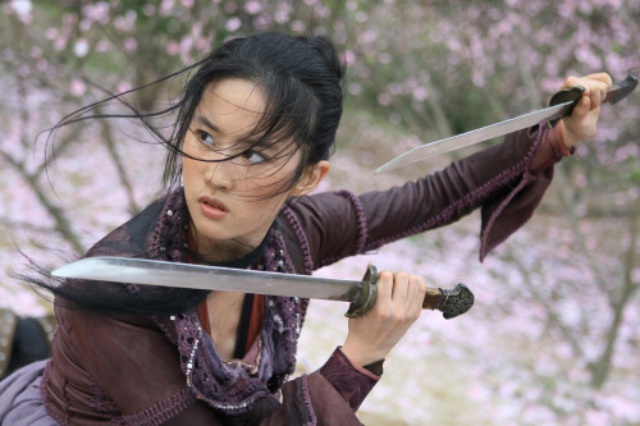Disney’s Mulan Finds Its Lead and It Is an Actual Chinese Actress

Yesterday, The Hollywood Reporter announced that the live-action adaptation of Disney’s Mulan finally found its lead in Chinese actress Liu Yifei, also known as Crystal Liu. Even more impressive, the people in charge of casting went out of their way to ensure that they got an ethnically Chinese actress.
A team of casting directors visited five continents and saw nearly 1,000 candidates for the role, which requires credible martial arts skills, the ability to speak English and the most ineffable requirement of all: star quality. In deference to cultural accuracy, the studio focused on locating an ethnically Chinese young woman to play Hua Mulan, who disguised herself as a man to take her father’s army conscription in fifth-century China.
It says a lot about the state of things that I and many others were legitimately shocked that they got an actual Chinese actress to play Mulan. When it comes to casting Asian characters in film and television, there tend to be two hurdles: (1) having the casting agency commit to actually casting an Asian actor, and then (2) casting the correct ethnicity.
The excuses as to why Asian actors aren’t cast in films are multiple and all idiotic. Masayori “Masi” Oka, known for his role as Hiro Nakamura on “Heroes”, was a producer on Death Note, and told EW that the reason why they didn’t cast Asian actors in the main role was that they didn’t speak perfect English:
“Our casting directors did an extensive search to get Asian actors, but we couldn’t find the right person, the actors we did go to didn’t speak the perfect English… and the characters had been rewritten,” he said.
Producer Dana Brunetti whitewashed the real-life protagonists of 21 because no “bankable” Asian American actors were available. Iron Fist and Doctor Strange both had to deal with pushback about their outdated white-saviors, plus white-washing a character because they didn’t want to offend Tibet—and they thought that putting a woman in the role would get them feminism points. Well, considering Marvel does have an editor-in-chief who pretended to be Asian to make shitty comics with heavy Asian cultural themes, this has been a longstanding problem with them.
However, the most terrible one I’ve seen is this excuse I found on Teen Vogue:
“I work with a lot of different people, and Asians are a challenge to cast because most casting directors feel as though they’re not very expressive,” the casting director allegedly said. “They’re very shut down in their emotions … If it’s a look thing for business where they come in they’re at a computer or if they’re like a scientist or something like that, they’ll do that; but if it’s something were they really have to act and get some kind of performance out of, it’s a challenge.”
Yup, that is the world we fucking live in.
For the latter issue, as I am not Asian myself, I can not speak what it means to have a Korean actress play a Chinese character (like Jamie Chung, who played Mulan on the ABC show Once Upon a Time and Chi-Chi in Dragonball Evolution). However, I can say that context matters.
The Ballad of Mulan, which tells the story of Hua Mulan, a female warrior who takes the place of her father and serves in the Chinese military for twelve years before returning home, is a story that has been a part of Chinese legend for centuries. It, like Joan of Arc and the legend of Bodica, is part of a narrative folklore about warrior women who rise above patriarchy. But that is not entirely what Mulan is about.
The Disney film, while amazing, is a very Western idea of what Mulan stands for. I mean, the number of times they say “honor” would make Prince Zuko cringe. Which isn’t to say that honor isn’t an important thing in Asian culture, but the story of Hua Mulan is at its core a story about the love between a daughter and the father that she would take his place in a war to save his life. Disney’s adaptation was really about making an Eastern story fit into the Disney branding of the time, which was all about the main character dealing with internal personal conflicts that clashed against a big bad. Which isn’t a bad thing, but it reflects the differences that occur when non-Asian writers write about Asian culture, versus Asian writers writing about their own culture.
So it is my hopes that Disney will not only have a Chinese actress in the role, but some Chinese writers and an Asian director who will be able to bring authenticity to the production. It isn’t enough to just have diversity onscreen; it has to be apart of the whole process.
(via The Hollywood Reporter, image: Lions Gate)
Want more stories like this? Become a subscriber and support the site!
—The Mary Sue has a strict comment policy that forbids, but is not limited to, personal insults toward anyone, hate speech, and trolling.—
Have a tip we should know? tips@themarysue.com